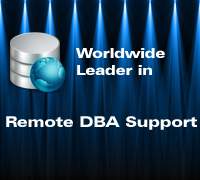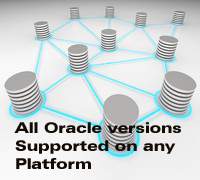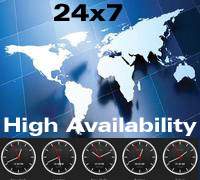Familiarize with your Applications.
It's extremely crucial to thoroughly familiarize yourself with the applications that are using your database. This rule applies not only to the development DBA, but also to the production DBA. Merely administrating the database without intimate knowledge of your allocations is recipe for quick failure. Your applications may have come into your company from varied sources or custom made, off the shelf, or developed in-house of by a consulting company. However, it is essential to list them all down and learn the following about each and all of them.
If you are working as remote dba experts then you should be aware of your every applications flow, timing of executions, impact of applications, and result of applications. Because when you are executing any remote database administration related task that time you should know impact on your applications.
There are some important questions needing to be raised:
- What application is doing?
- Application by type like OLTP or DSS.
- Applications are batch oriented or interactive?
- When those batch run in routine?
- Who run those applications?
- What tables,view,PL/SQL objects are being accessed?
- How transactions are carried out?
- What is the transactions duration?
- Which type of components are attached with application and how those attached?
- Are that component accessing and fetching data from other databases?
Each of these questions is extremely important to ask. They should be asked at an early stage, before the applications are deployed. Due to application complexity, you may not have all accurate answers at this stage. However, at least a basic idea will get you started. The important part here is, you need to get as many answers as you can, prior to deployment. The answers to these questions will be help you decide how to deploy each application. Especially if your organization is big and has various applications, deployment needs to be studied in detail.
Randomly choosing a system and building a new database on the system or using an existing one to got with it does not constitute appropriate deployment. Due analysis needs to be done to determine which system/database the application has to be placed on, after understanding the nature of the application and the current traffic handled by the existing system and databases. Each system and database's peak capacity has to be understood and reconciled with the current traffic usage and pick hour usages. If current traffic is close to the peak capacity, then obviously new application may not be deployed against such database systems. Doing so would only cause bad performance, not only to the new application being deployed, but also to the existing applications currently using the database system. Similarly, if an application shares tables already used by other existing or new applications, all such applications may or may not be run on the same box, depending on the nature of type of application.
For instance, a reporting database and an operational OLTP database may be sharing the same tables. However, due to their varied nature and type, they may not coexist peacefully on the same database system. Especially if both are high volume applications are sharing just a couple of master tables, it doesn't means that they need to reside on the same database system. In short we can say that determination of application type and nature is important to decide location of new deployment or new creation of database.
In contrast, if two applications share a lot of data, you may have to place both on the same Oracle server and ensure that the hardware and software architecture is robust enough to handle both without reaching peak capacity. If two applications do not share anything at all but are tiny enough to be placed on the same Oracle server. Application deployment does not merely mean assigning a database to one or more applications and just tuning and tweaking the Oracle database server.
Hence, if you have exact detail of application and understanding nature of application then you may take a right decision which is very useful to prevent future performance problems. Future forecasting of performance related issue is more important in database dba services and database services. Dbametrix offers database managed services and database services in remote services.
You need high expertise for managing different versions of Oracle database on various operating systems for Oracle server tuning. Expert remote dba team offers uninterrupted database operations execution smoothly. Dbametrix offers professional remote dba services for Oracle databases with strong service level agreement with lowest cost. You can get experienced senior level database services 24x7 with strong response time. Dbametrix is having expertise in all kinds of Oracle database support.
Dbametrix is world wide leader in remote dba support. Expert remote DBA team of Dbametrix is offering high quality professional Oracle DBA support with strong response time to fulfill your SLA. Contact our sales department for more information.









